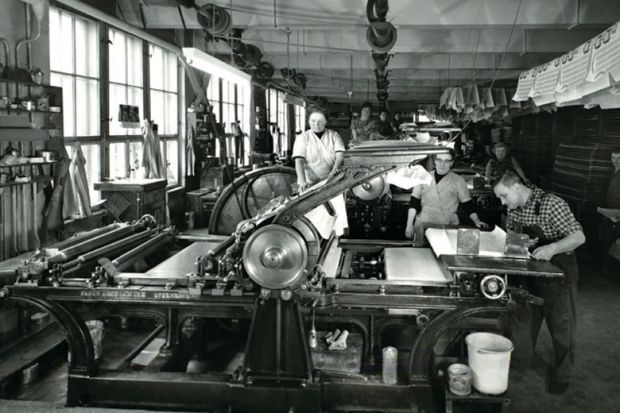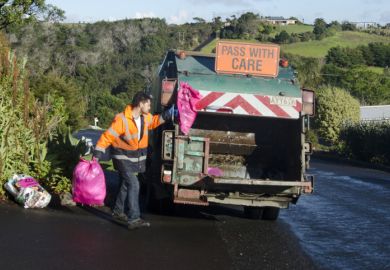Debates about forms of media dying out are almost as old as the media industry itself, and they peak every time major technological transformations impact on production and consumption. We live in an era seemingly preoccupied with shifts in broadcast and print media alike, and the increasingly diverse ways people access and consume them via myriad bits of hardware at home and on the move.
Many would agree that we need more serious scholarly work that engages with the innovation challenges that characterise the current media age, and Julia Cagé’s highly readable study focusing on that most traditional of media, the print press, is thus very welcome. However, readers will have to wait until page 106 for Cagé’s valuable statement summing up the imperative in current times: “it is extremely important that we begin to think of the media as part of a much larger ecosystem, the knowledge-producing sector of the economy”.
Consumers have been quick to dip into the plethora of information sources offered by the online environment, while mainstream media producers have largely struggled to maintain their readerships, especially in print form. Much of Cagé’s overview of the history of the press, its economics, and key aspects of their transitions, helps us to understand the bases for this struggle. The main focus is economic, so statistics crop up throughout the text and the main themes are as expected: the rise and fall of advertising revenue models of funding, growing web readerships against falling print ones, different national tax structures, press subsidies and moguls.
The breadth signals that coverage of any one area is limited and in the main depends on key examples or brief case studies. Even the new hybrid model Cagé proposes, the nonprofit media organisation (NMO), is covered in limited depth. Its emphasis is on stability of funding and combines a donor/shareholder approach with thresholds on voting rights intended to even out power across small and large investors. The inspiration comes from the university model, in which commercial and non-commercial activities are combined, and this is reflected in other references to the university sector elsewhere in the arguments presented.
While the book’s main title is a solid description of what Cagé covers, readers should not expect a great deal of content on the subtitle’s big themes. I would see these as describing the framing for the discussion rather than signposts to extensive content on them. This framing is both appropriate and useful. Saving the Media is an informative and lively read with a well-balanced mix of facts and statistics that will serve best as background or introductory reading, raising insightful areas worthy of further exploration. The breadth of its approach is a good basis for critical thinking about the nature of the new information economy and the ways it challenges familiar market models. It signals the extent to which these have led to embedded assumptions that may well be hindering new thinking and innovation.
Cagé’s key message is that the media have some steep learning curves ahead in finding new forms suited to the current information-rich environment, and that these may demand a great deal of imagination. This is an exciting prospect for readers.
Gillian Youngs is professor of creative and digital economy and head of innovation and impact, Westminster School of Media, Arts and Design, University of Westminster.
Saving the Media: Capitalism, Crowdfunding, and Democracy
By Julia Cagé
Translated by Arthur Goldhammer
Harvard University Press, 176pp, £14.95
ISBN 9780674659759
Published 28 April 2016
Register to continue
Why register?
- Registration is free and only takes a moment
- Once registered, you can read 3 articles a month
- Sign up for our newsletter
Subscribe
Or subscribe for unlimited access to:
- Unlimited access to news, views, insights & reviews
- Digital editions
- Digital access to THE’s university and college rankings analysis
Already registered or a current subscriber? Login




